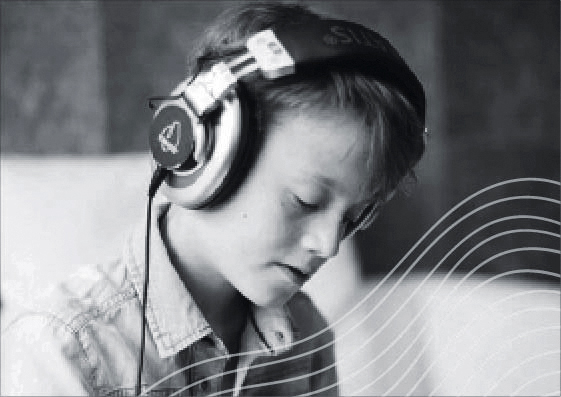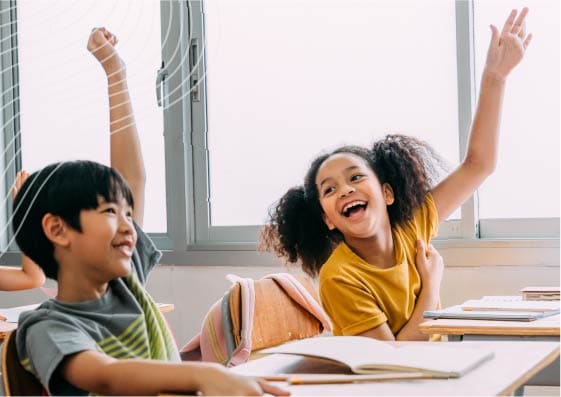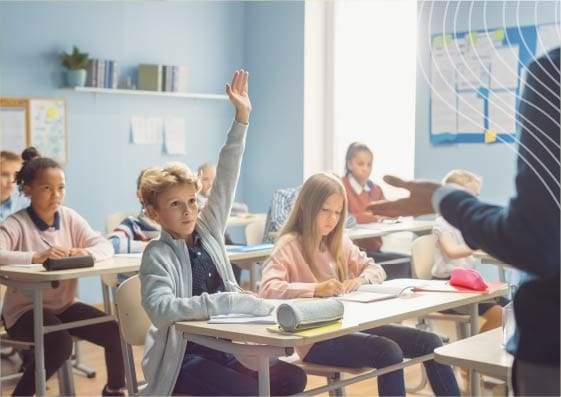
Changing the lives of struggling students.
Using a powerful blend of music, neuroscience, and Waldorf methods, I help frustrated learners develop effective listening skills so they can thrive in their social and academic lives.
Listen. Learn. Live ... without limits.
it's pure heartache
When your child is struggling in school
... and you don’t know how to help.
I’ve been there. That was me and my little boy. I spent countless hours worrying, and long, sleepless nights researching and learning — until I found a key.
Now, my son is a thriving college student.
And I’m sharing the best tools I discovered with the world. So that everyone who’s currently struggling can find joy in life and reach their full human potential.
Is your child struggling through another school year?
They didn’t grow out of their difficulties over the summer break, and a new school year is well under way. The compensation strategies that they used for the elementary school worked for a while, but with middle school looming, the stakes are going up, and the distractibility remains. The disorganized backpack and school folders camouflage the homework assignments that are due three days from now, and your child needs supplies for the diorama that’s being presented tomorrow, but the store closes in 10 minutes. The occasional, “I don’t want to go to school” starts being accompanied by generalized “not feeling well” behaviors, and pretty soon the phrase, “I hate school, I don’t learn anything anyway” becomes more common. And you’re always worried that if you say the wrong thing, it will spiral into a meltdown.
Listening skills could be to blame.
What if I told you that your child might be having difficulty with their listening skills? That if we addressed that shortcoming, their school experience could transform?
“Yes, but we’ve been to the doctor and their hearing is fine,” you say.
hear well but listen poorly.
— Alfred Tomatis
Hearing and listening are different.
One is passive; one is active. Hearing just happens, but listening occurs because you pay attention to what you’ve heard. The ability to filter out extraneous sounds and focus on the relevant sounds is a high-level cognitive skill and is the foundation for success in academic, social and professional environments.
Ideal listening development occurs with the development of the ear, during the first four months of pregnancy. But disruptions (physiological as well as psychological) can occur at all stages of life from prenatal all the way through late adulthood. These might include premature or traumatic birth, chronic ear infections in early childhood, stress, overexposure to loud sounds, brain injury, age-related hearing loss, to name a few.






hear well but listen poorly.
— Alfred Tomatis
How I help
Consultations. Resources. Tomatis® Method.
Each client begins with a consultation, followed by curated recommendations and resources to support your unique learning and listening needs. When appropriate, I facilitate a highly customized Tomatis® method listening journey.






Imagine your student thriving.
I know you have a vision of how it could be different: You imagine your child going to school happily in the morning, and coming home with a bounce in their step, and a big smile, sharing about their day with pride. Because the day has gone smoothly, they still have energy to complete their homework (no six-hour marathon with multiple meltdowns). There’s finally space in the day for relaxed family time. And you all genuinely enjoy these hours together, filled with love and laughter. Plus, your little one is starting to build warm, mutual friendships with their peers.
Seeing their newfound confidence and happiness warms the depths of your heart. It’s what you have always wanted for your child, but had almost given up hoping for. But this actually can be your reality!
— Alfred Tomatis
— Alfred Tomatis
Neuroplasticity makes it possible.
The brain and nervous system are remarkably flexible. Recent research has taught us that they constantly adjust their activity and structure in response to stimuli (inside us, or around us). This is called neuroplasticity. It means that our brain and nervous system change when they encounter injuries or trauma, which may lead to real challenges. But it also makes it possible for us to create change on purpose: with carefully crafted stimuli, we can retrain and reshape our nervous systems so they work better.
That’s exactly what the Tomatis® Method does.
SUSAN WAS A DELIGHT TO WORK WITH.
SHE WAS CALM, LISTENED TO ME, AND TOOK THE TIME TO ANSWER ALL MY QUESTIONS.
— Annabeth
Listening affects everything.
The ear does more than just provide a vehicle for the sense of hearing. The vestibule, located in the ear, is in charge of movement and motor planning. The cochlea is in charge of analyzing sound; but if we aren’t analyzing sound optimally, it affects attention and memory. Without attention, listening doesn’t happen.
Listening skills are foundational skills. When they are weak, academic achievement, social engagement and self-regulation are affected. When they are strong, the true human being is free to manifest its full potential!
IMPROVE
- postural control
- vestibular and motor skills
- coordination
- attention and memory
- language skills and communication
- academic skills executive functions developmental delays emotional regulation
work with me
Peace of mind awaits.
I know there’s a lot weighing on your heart. And I’m listening. Together, we will navigate your child’s options and create a clear and hopeful path forward.
my parenting journey
A painful story with a happy ending.
It broke my heart...
My children attended a wonderful, nurturing Waldorf school with abundant art, music, movement, and field trips. But soon, I was hearing, “I don’t want to go to school, my stomach hurts” or “I hate school, I don’t learn anything anyway.”
But my son’s struggle began in Kindergarten with chronic ear infections. First he missed many weeks of school. Then many months later we discovered that he could hardly hear because of all the fluid in his ears. But nobody had realized because he was masking so well.
He couldn’t keep up.
Difficulties with movement and attention in elementary school grew into memory challenges. And he was so frustrated, because he was trying as hard as he could but couldn’t match the expectations of his teachers, his classmates, and himself. By middle school, he had trouble following even the simplest of multi-step instructions. I worried about junior high, when there’s so much focus on expressive language and writing. He already avoided these subjects because that’s where he was weakest.
We tried it all.
Worried that he might need to attend a school for the deaf, we tried it all. The ENTs suggested putting tubes in his ears, or hormone therapy (scary!) I spent my days shuttling him between therapy appointments with multiple practitioners. We tried nutrition, physical therapy, speech therapy, acupuncture, chiropractic, and various OT therapies. But these modalities were not having a strong enough effect to stop my son’s downward spiral of confidence and self-esteem.

Then... everything changed!
After my son did a series of Tomatis® listening intensives, I watched him gradually let go of his old, inefficient listening habits. He developed new skills that he missed out on in his earlier years. In high school, he bloomed — making the honor roll for the first time in his academic career! No longer in the learning support classes, he graduated proudly with his peers and is now a college student, collaborating with classmates, with a bright, creative future ahead of him.
Now it's your turn.
All about tomatis
Your questions answered.
Answers to the questions clients often ask me about the Tomatis® method.

CHICAGO AREA
5250 Old Orchard Road
Suite 300
Skokie, IL 60077
NEW YORK /
NEW JERSEY AREA
700-76 Broadway #307
Westwood, NJ 07677
SUSAN HIERTZ
773-761-8285
>> send a message
Copyright © 2023 A Sound Approach
Website design by Brand Your Light
